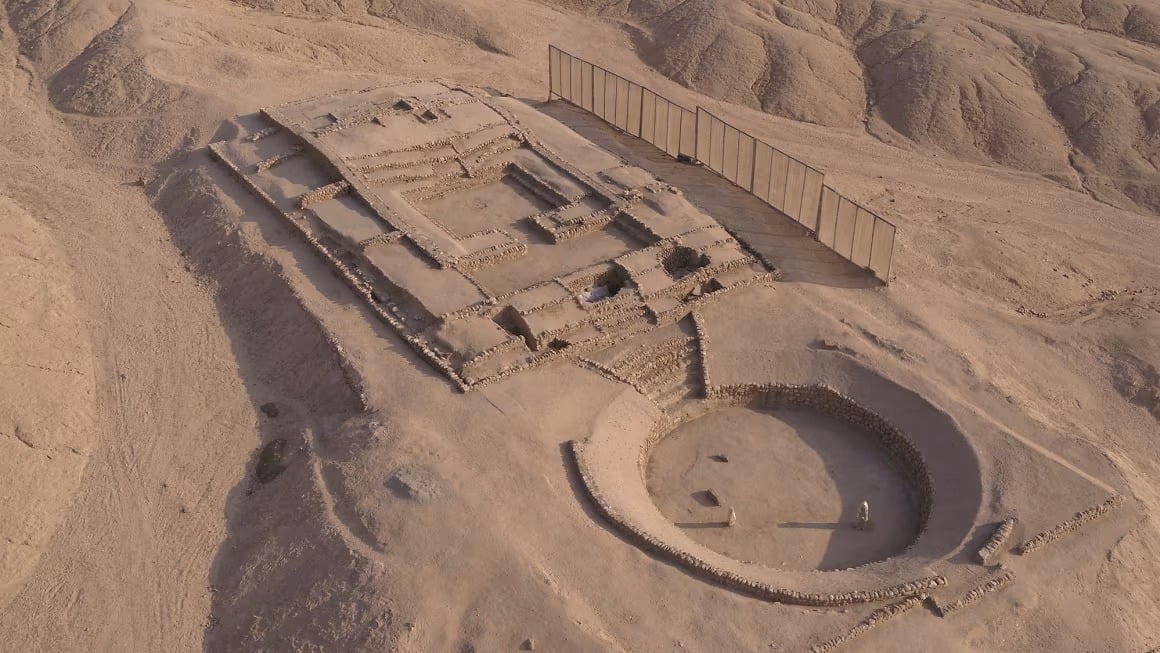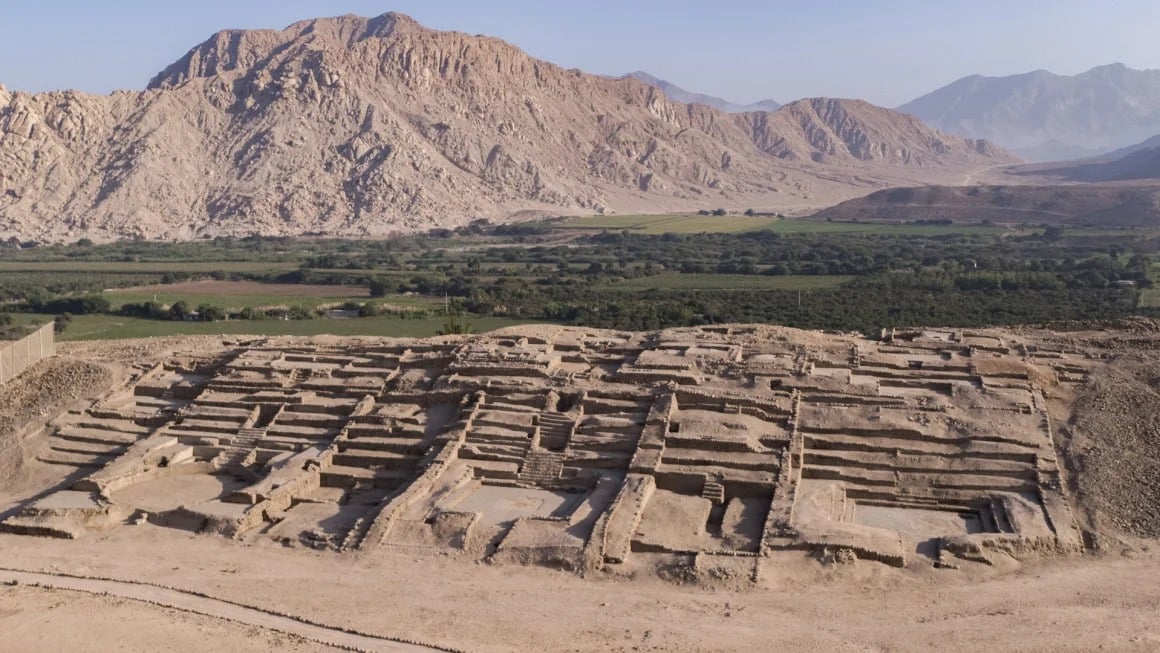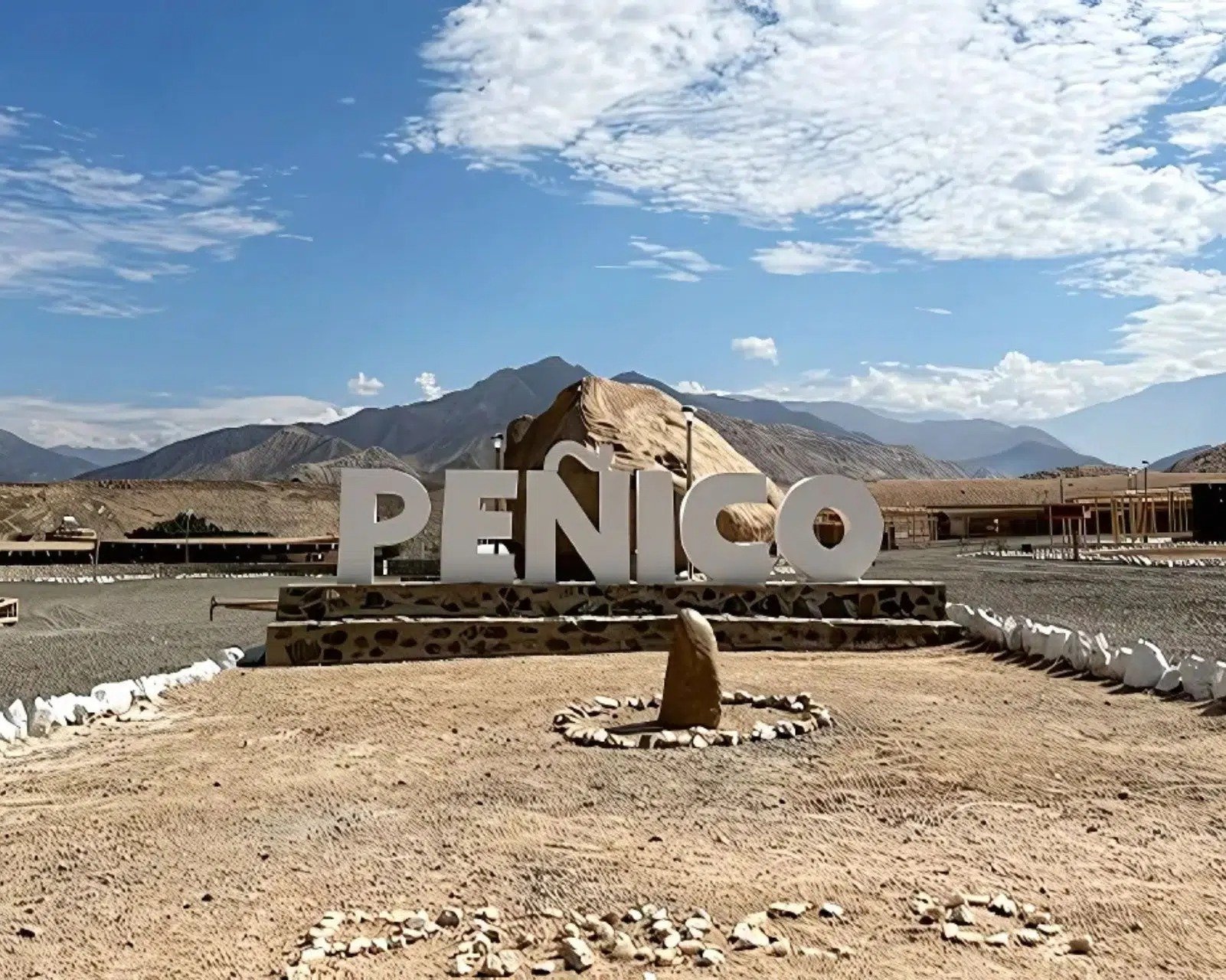3,500-Year-Old City Opens To Visitors in Peru
Language
Reading Level
Listen to Article
Alignment

On July 3, 2025, archeologists in Peru unveiled the ancient city of Peñico. The settlement, founded between 1800 and 1500 BC, lies 124 miles (200 km) north of Peru's capital, Lima. It was once a bustling trading hub connecting Pacific coastal communities with those in the Andes and the Amazon. This was around the same time early civilizations thrived in the Middle East and Africa.
The scientists first stumbled upon Peñico in 2017. After eight years of excavation, they have uncovered 18 structures, including ceremonial temples and residential complexes. One standout is a rectangular plaza known as B2. Its walls feature intricately carved images of trumpets and other musical instruments. Experts believe the plaza served as a key site for rituals and official gatherings. Other discoveries include clay sculptures of humans and animals, as well as necklaces made from beads and seashells.

Peñico lies close to the site of Caral, the oldest known civilization in the Americas. Caral was built 5,000 years ago in what is now coastal Peru. It had massive pyramids, sunken plazas, and advanced city planning. The Caral people grew cotton, beans, and squash. They used cotton nets to catch fish, which they traded with other coastal communities. Remarkably, archeologists have found no evidence of warfare. This suggested a peaceful society focused on religion, music, and community life.
It is believed that shifts in climate — such as prolonged droughts or changes in river patterns — may have led to Caral’s decline. As water became scarce, farming likely became harder, making it difficult to support a large population. This may have forced people to abandon the city and contributed to the rise of Peñico.

The Peñico site is now open to the public. Visitors can explore its ruins, attend traditional festivals, and see digital reconstructions of ceremonial spaces. These experiences offer a vivid glimpse into the lives of the ancient people who once lived there.
Resources: Smithsonianmag.com, BBC.com, Reuters.com, Popularmechanics.com

Get the Workbook for this article!
Workbook contains: Article, Reading Comprehension, Critical Thinking Questions, Vocabulary in Context (+ answers), Multiple Choice Quiz (+ answers), Parts of Speech Quiz (+ answers), Vocabulary Game (+ answers)Cite Article
Learn Keywords in this Article
15 Comments
- givingteabags23 daysnot that surprising there's stuff on this planet thats 60,000 years old
- fanny-brotha2 monthsYes I know but I don’t believe that it is almost 4000 YEARS OLD
- fanny-brotha2 months3,500yrs old I am surprised 😱
- degofofucula3 monthsimaging living there
- fanny-brotha2 monthsYes that is what I am thinking about now.
- degofofucula3 monthswhy does it almost look like a tank
- letsbe3 monthsthat's older then amarica. ps america 250 years old
- letsbe3 monthsthat would be crazy to go see
- koolkody3 monthswow 35 hundred yrs old
- latofyzefiza3 monthsoml 3,500 years ago is crazy
- ashvi3 monthsWow like amazing imagine how it was 3,500 years ago
- koolkody3 monthsprobably fancy unlike today which is sad